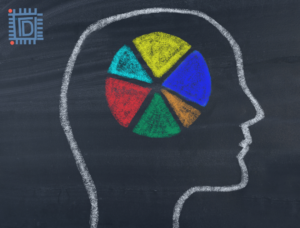Maybe you score higher on an IQ test, and you think that you would be able to accomplish great things in life ahead but wait there is something else that may be more important than your IQ and that is your emotional intelligence. Emotional intelligence is all about your ability to recognize your emotions; to manage your emotions in times of stress without getting overwhelmed; to understand others’ emotions and respond to them effectively; to self-motivate i.e. to have the internal motivation and to be empathetic towards others in different social settings. If you want to feel happy and content then you must work to develop your emotional intelligence.
There are 5 components of emotional intelligence:
Ability to be aware of one’s own emotions: Are you aware of your own emotions and understand them fully? If yes, then surely you would also have the ability to realize how those emotions may influence others. Self-awareness is the first and foremost component of emotional intelligence. “In effect, self-awareness is the recognition of one’s own emotional state at any given point in time,” says Dr. John Diffy who is a clinical psychologist, a life coach, and an author. This implies that we are not wholly aware of our current emotional state most of the time and, in turn, we ignore the extent to which these emotional states may influence our behavior and thought process. So, if we start managing our emotional states, we would be able to manage other elements of our lives too.
 Ability to self-regulate: It’s the ability to manage our emotions and behavior according to the requirements of the given circumstances, to be able to resist highly emotional reactions to upsetting stimuli, to calm down upon getting upset, to get adjusted to a change in expectations, and to handle frustration without an outburst. So, self-awareness is a set of skills that helps us direct our own behavior towards a goal, despite the unpredictability of the world and our own feelings. Obviously, how an instantaneous, huge, and strong reaction may be appropriate in any given situation. So, learning to handle those strong reactions and finding ways to deal with distressing situations is always a key to adapting to ever-changing circumstances.
Ability to self-regulate: It’s the ability to manage our emotions and behavior according to the requirements of the given circumstances, to be able to resist highly emotional reactions to upsetting stimuli, to calm down upon getting upset, to get adjusted to a change in expectations, and to handle frustration without an outburst. So, self-awareness is a set of skills that helps us direct our own behavior towards a goal, despite the unpredictability of the world and our own feelings. Obviously, how an instantaneous, huge, and strong reaction may be appropriate in any given situation. So, learning to handle those strong reactions and finding ways to deal with distressing situations is always a key to adapting to ever-changing circumstances.
The ability to self-motivate or, more specifically, the ability to motivate yourself intrinsically is another component of emotional intelligence. You are intrinsically motivated when you do something because it is internally fulfilling, enjoyable, or interesting, not because it offers external rewards. External rewards include certain incentives like money, positive feedback, or promotion and social norms and requirements like fame, good grades, or simply some sort of appreciation.
So, when you indulge in an activity just for the sake of enjoyment or personal satisfaction, this kind of engagement is the result of intrinsic motivation. On the other hand, when you engage in an activity for the sake of obvious external rewards, the main reason behind this kind of behavior is extrinsic or external motivation. Research supports the idea that internal motivation has greater power than external motivation. External rewards can never be a permanent source of satisfaction and happiness because when we do earn these rewards, they become less valuable for us, and then we look for something bigger and shinier than that of our current achievement, but internal rewards are different from external ones because there is no alternative of the inner satisfaction and the inner satisfaction is the major reward of intrinsic motivation. Moreover, the drives behind intrinsic motivation last for longer than the drives behind extrinsic motivation. Individuals who motivate themselves in this way have a tendency to be more committed and goal-focused.
 Ability to be empathetic: We like to put ourselves in others’ shoes. We are programmed for friendliness. Empathy is at the base of the friendly exchange of information, which is key to building alliances and affiliations for successful social relations and societal development. Empathy also allows an individual to understand the dynamics that affect relationships, both personal and professional. So, if you have this ability, and you recognize and understand others’ feelings and consider those feelings before reacting in any social setting then you would be able to build strong social relationships.
Ability to be empathetic: We like to put ourselves in others’ shoes. We are programmed for friendliness. Empathy is at the base of the friendly exchange of information, which is key to building alliances and affiliations for successful social relations and societal development. Empathy also allows an individual to understand the dynamics that affect relationships, both personal and professional. So, if you have this ability, and you recognize and understand others’ feelings and consider those feelings before reacting in any social setting then you would be able to build strong social relationships.
 Ability to manage others’ emotions: This ability comprises skills required to interact and communicate with others every day. This includes both verbal and non-verbal communication. When you are able to understand and manage other people’s emotions, you would be able to make strong connections with them, you would develop and maintain value-oriented social relations that welcome many other positive outcomes like improved mental health, better academic performance, better cooperation at work and so on.
Ability to manage others’ emotions: This ability comprises skills required to interact and communicate with others every day. This includes both verbal and non-verbal communication. When you are able to understand and manage other people’s emotions, you would be able to make strong connections with them, you would develop and maintain value-oriented social relations that welcome many other positive outcomes like improved mental health, better academic performance, better cooperation at work and so on.
Measurement of emotional intelligence and emotional quotient
Emotional intelligence may be measured using a series of questions, and the result is shown in the form of a number called the emotional quotient. Most of the emotional intelligence tests rank your abilities in above-mentioned five areas. Some of the well-known tests used to measure it include:
the form of a number called the emotional quotient. Most of the emotional intelligence tests rank your abilities in above-mentioned five areas. Some of the well-known tests used to measure it include:
- the Mayer-Salovey-Caruso Emotional Intelligence Tests
- the Situational Tests of Emotional Management
- the Situational Tests of Emotional Understanding
- the Diagnostic Analysis of Nonverbal Accuracy
These tests differentiate between your ability intelligence and trait intelligence. Ability intelligence measures your ability to solve problems using social and emotional skill sets. Trait intelligence evaluates and analyzes your own typical behaviors.
Moreover, there are three methods to measure emotional intelligence: Self-Report, Other-Report, and Ability measures.
Self-report tests have been used for decades, and they serve a very useful purpose, but they may have serious drawbacks such as emotional Intelligence consists of a number of skills and the skills are best measured by ability tests, not by self-report.
The result of an emotional intelligence test is shown in the form of an emotional quotient that indicates whether your score is low, average, or above average or a high one.
By understanding the components of emotional intelligence, you will have a better understanding of what it comprises and what it does not. And only this understanding will enable you to work and improve your emotional intelligence. It’s time to think differently and acknowledge that your reasoning and problem-solving abilities cannot solely be the basis of your success in life, there is always a strong need to understand and regulate your emotions in order to succeed.
Follow us:
Facebook : Think Different Nation
Instagram : Think Different Nation
Twitter : @TDN_Podcast
